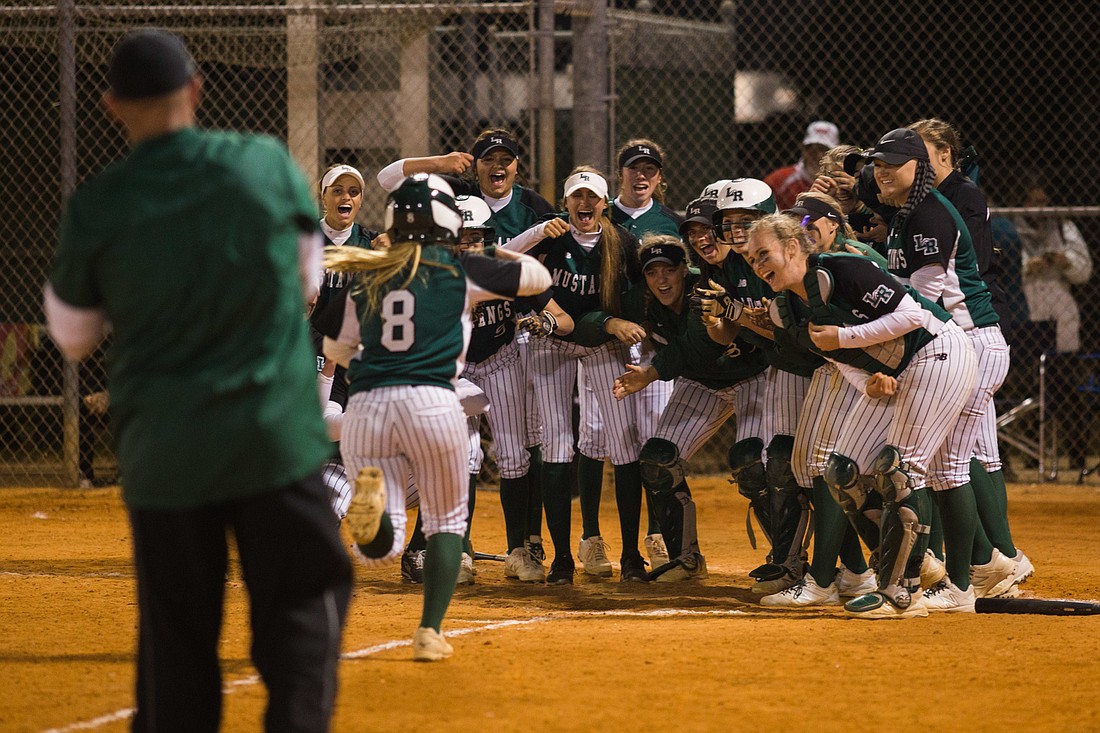- May 11, 2025
-
-
Loading

Loading

The college recruiting softball world has changed.
On April 18, the NCAA Division 1 Council announced it passed new recruiting regulations in regards to all sports, excluding football and basketball. Several sports were affected in different ways, but perhaps the most significant changes came in softball, where programs are now barred from any contact with players and their families before Sept. 1 of the player’s junior year of high school.
Traditionally, softball players have been among the earliest athletes to commit to schools, with some committing in middle school. An NCAA study found that 49% of Division 1 softball players received their first scholarship offer before or during their sophomore year of high school.
On April 23, days before the new regulations went into effect on April 25, the University of Florida landed a commitment from Durham, N.C., sixth grader Layla Lamar.
Lamar is so young, she still won’t have arrived at Florida when Lakewood Ranch High sophomore Avery Goelz, who committed to the Gators early in her freshman year, graduates from the school. Goelz said she never felt overwhelmed during her recruitment despite first gathering offers in eighth grade. Goelz said going on unofficial visits as a freshman allowed her to get a taste of college life and feel out the vibes of different programs. She never felt pressured to make a decision, she said, and had to convince her parents she was ready to commit when she did.
Area coaches, meanwhile, are split on the new rules.
Braden River High coach Melissa Dowling said the changes are largely positive. Dowling said when you commit to a school at such a young age, it creates unnecessary risk. If a player commits to a school in eighth grade and the coach of that school leaves when the player is a junior, that player might land in a bad position. There’s also a chance a college program completely changes from the commitment time. Also in question is whether students know their academic direction at such a young age.
Dowling said she’s in favor of letting kids mature and decide what they want.
“(Young kids) don’t even know what they’re going to have for lunch every day,” Dowling said. “They need time to figure out what they want in a school.”
Dowling also said the move is a positive for kids who develop their skills at a later age. If a student isn't getting any offers as a freshman or sophomore, it could make them go in a different athletic direction.
TJ Goelz, the father of Avery Goelz and coach of both Lakewood Ranch and the Tampa Mustangs-TJ travel team based in Lakewood Ranch, has mixed feelings about the changes. He is happy the middle school recruitment of players is over, but said the NCAA erred in the timing of the recruitment start date. Most college recruitment occurs over the summer, he said. By starting recruitment on Sept. 1, programs are only given one summer to evaluate players, and most of their attention will be given to top-tier players. Goelz said the second- through fifth- tier players, who are still scholarship-level players, will have to wait for the top tier players to make their choices before they start getting serious looks, and by the time that happens, it may be too late.
Goelz said a compromise date of Sept. 1 of a player’s sophomore year, or at least June 1 of their junior year, would make more sense, as it would give an extra summer of evaluation.
Some effects of the changes are unknown. Goelz said emphasis may be given to players’ performances during the high school season to combat the lack of summer evaluation time, and that travel teams could start playing fall tournaments in September rather than October or November.
Avery Goelz said she hopes the changes cause young players to stop worrying about who is in the stands.
“Enjoy the game itself,” Avery Goelz said. “It (recruitment) will come naturally.”